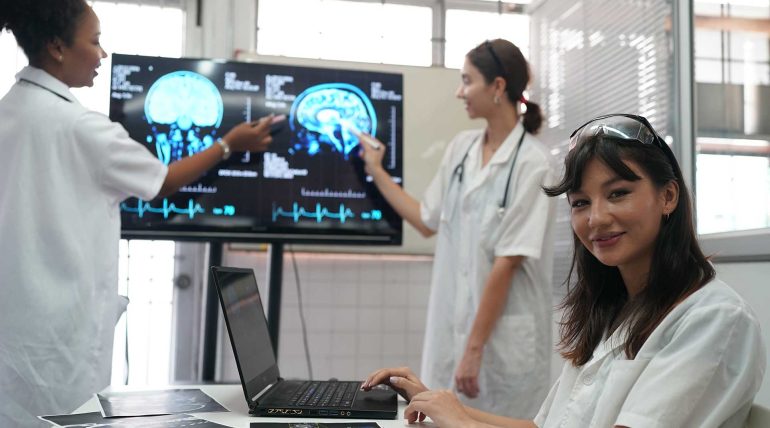
Artificial Intelligence (AI) is revolutionizing healthcare, offering transformative solutions that improve patient outcomes, streamline operations, and make care more accessible. From accurate diagnostics to personalized treatment plans, AI is shaping the future of medicine in profound ways.
1. Enhancing Diagnostics with AI
AI-powered diagnostic tools are becoming essential in identifying diseases early and accurately. By analyzing medical images, such as X-rays, MRIs, and CT scans, AI algorithms can detect anomalies like tumors, fractures, and other abnormalities with precision.
- Faster Diagnosis: AI reduces the time needed to analyze complex datasets, allowing for quicker diagnosis and treatment.
- Improved Accuracy: With machine learning, AI identifies patterns and anomalies that may be overlooked by the human eye, ensuring more reliable results.
2. Personalized Treatment Plans
Every patient is unique, and AI is enabling the creation of customized treatment plans based on individual health data. By analyzing a patient’s genetics, lifestyle, and medical history, AI can recommend treatments tailored to their specific needs.
- Precision Medicine: AI assists in identifying the most effective drugs and therapies for individual patients, minimizing trial-and-error approaches.
- Predictive Healthcare: AI predicts potential complications or disease progression, enabling preventative care and timely interventions.
3. AI-Powered Virtual Health Assistants
AI-driven virtual assistants are transforming patient care by offering real-time support and guidance.
- Symptom Checkers: AI-powered chatbots help patients assess symptoms and provide guidance on next steps.
- Medication Management: Virtual assistants remind patients to take medications, monitor adherence, and provide alerts for potential drug interactions.
4. Revolutionizing Medical Research
AI accelerates medical research by analyzing vast datasets and identifying trends, helping researchers discover new drugs and treatments faster.
- Drug Discovery: AI reduces the time and cost involved in bringing new drugs to market by simulating chemical interactions and predicting efficacy.
- Clinical Trials: AI identifies suitable participants for clinical trials and analyzes results more efficiently, speeding up the research process.
5. AI in Remote Monitoring and Telemedicine
AI enhances remote monitoring and telemedicine, making healthcare accessible to patients in rural or underserved areas.
- Wearable Devices: AI analyzes data from wearables to monitor vital signs, detect irregularities, and alert healthcare providers.
- Telehealth Integration: AI ensures efficient virtual consultations by managing patient records and providing real-time data analysis during calls.









